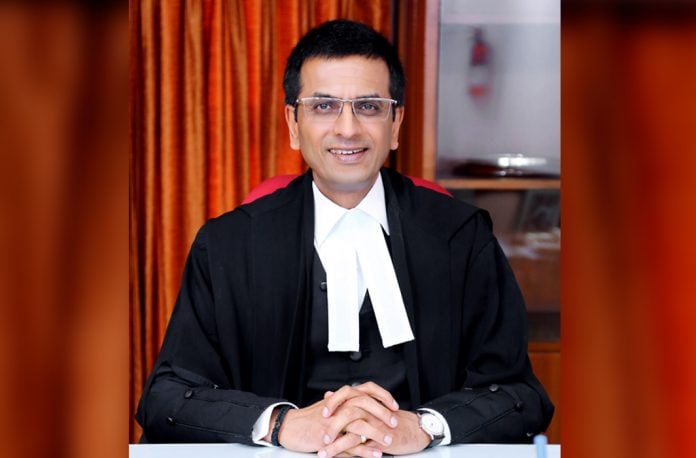Chief Justice of India D.Y. Chandrachud on Saturday said that district judiciary was the first interface for citizens and focus should be laid on live streaming of its proceedings.
Speaking at the Hindustan Times Leadership Summit 2022, Justice Chandrachud said they were trying to merge the e-court services with the Common Service Centres, so that the services provided to citizens could reach out to every gram panchayat in the country.
Stating that live streaming of proceedings in several High Courts across the country had already begun, the CJI said live streaming enhanced the productivity level of women lawyers.
As the courts shifted to online mode, many women lawyers appeared through video-conferencing.
Talking about the problems women lawyers faced, he said that some courts in the country did not have separate toilets for women.
He then appreciated the fraternity, saying that amid the stark realities facing the judiciary, the judges were doing a tremendous work.
Talking about the problems faced by women lawyers, he said that some courts in the country did not have separate toilets for women. Justice Chandrachud then appreciated the fraternity, saying that amid the stark realities facing the judiciary, the judges were doing a tremendous work.
As per the CJI, the structure of legal profession, which was feudal, patriarchal and not very accommodating for women, had to be changed, so as to bring more women in the legal sector.
He stressed on the need for a democratised and merit-based entry for women. The CJI said the concept of merit and diversity needed a re-visit.
Talking about the social media, the CJI said it has posed one of the biggest challenges for the judiciary, as it was not easy to distinguish between what exactly was there in the realm of policy and legality.
Referring to the ‘real time’ reporting regarding verdicts delivered by the judges, the CJI said since the judges were being constantly evaluated, thanks to Twitter, Telegram and Instagram, they need to refashion, recoup and rethink themselves, so as to adapt to the challenges of this age.
The CJI further said that technology has huge potential to change the traditional ways of working as judges.
He said the court buildings were built in such a way that they created an awe in the litigants, adding that this was the mind of the colonial design.
He added that courts were the instruments of the nation and equal service providers to the citizens.
The CJI also touched upon the topic of pendency in courts, saying that in India, the Supreme Court judges hear more cases in a week than what top courts in the United States and the United Kingdom hear in a year.
As per Justice Chandrachud, the government was the largest litigant in the court because of a culture of indecision at the lowest rungs.
He also talked about the use of technology in legal proceedings, saying that remaining opaque was one of the greatest dangers to the institutions in a constitutional democracy.
The CJI said opening up to a process generated a degree of accountability, transparency and a sense of responsiveness to the needs of citizens.


